Workshop on quality accreditation according to ABET and AUN standards under the BUILD-IT project
From March 13 to March 15, 2023, Hanoi University of Industry in collaboration with BUILD-IT Project organized a workshop with the participation of staff and lecturers of the University.
Workshop with 03 topics "Assessment Techniques for Soft Skills", "ABET and AUN Accreditation: Verifying Self-Assessment Reports and Evidence - Gathering Evidence Through Interviews" and "Design Thinking for Higher Education Leaders”.
This event was part of a series of activities under the Project to Promoting University-Business Cooperation Through Innovation and Technology (BUILD-IT) sponsored by the United States Agency for International Development (USAID) and conducted by Arizona State University (ASU).
Attending the seminar, there were Dr. Scott Danielson, Arizona State University (ASU) and Mr. Tran Thai, Program Manager for Accreditation and Quality Assurance at ASU Representative Office in Vietnam.
Workshop "Assessment Techniques for Soft Skills"
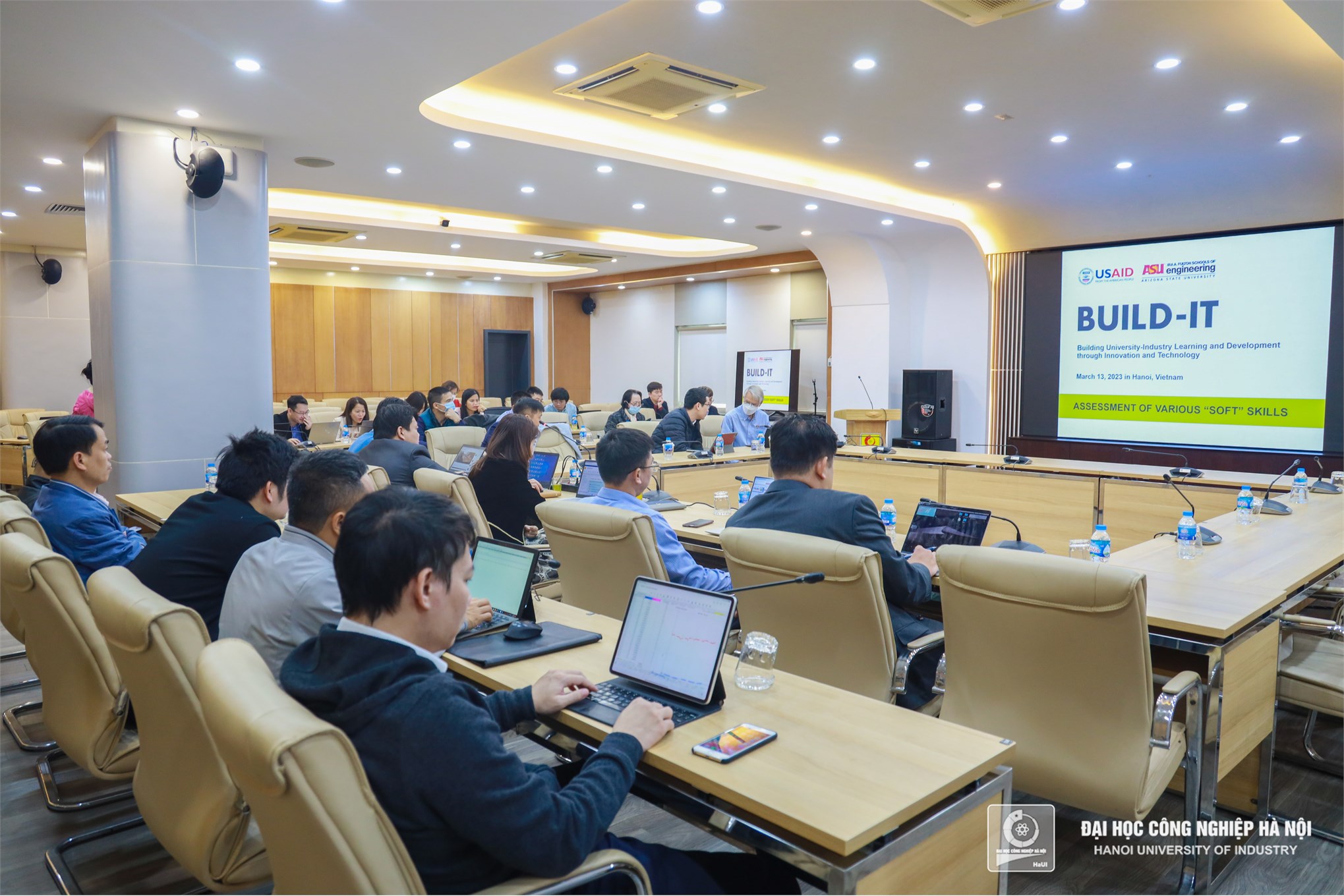 Overview of the workshop "Assessment Techniques for Soft Skills"
Overview of the workshop "Assessment Techniques for Soft Skills"
The Workshop "Assessment Techniques for Soft Skills" provided knowledge about Bloom's Taxonomy according to 6 levels of thinking, classified from low to high level, including Remembering, Understanding, Applying, Analyzing, Evaluating, Creating and standard output assessment tools, with emphasis on advanced classroom assessment techniques (CATs). The assessment techniques for soft skills need to harmonize between three factors: output standards, teaching methods, and assessment tools. Taking students' learning and training results according to AUN-QA standards as a basis to propose effective recommendations and solutions to improve training programs and activities, and foster necessary skills for students following the PDCA cycle (Plan - Do - Check -Act).
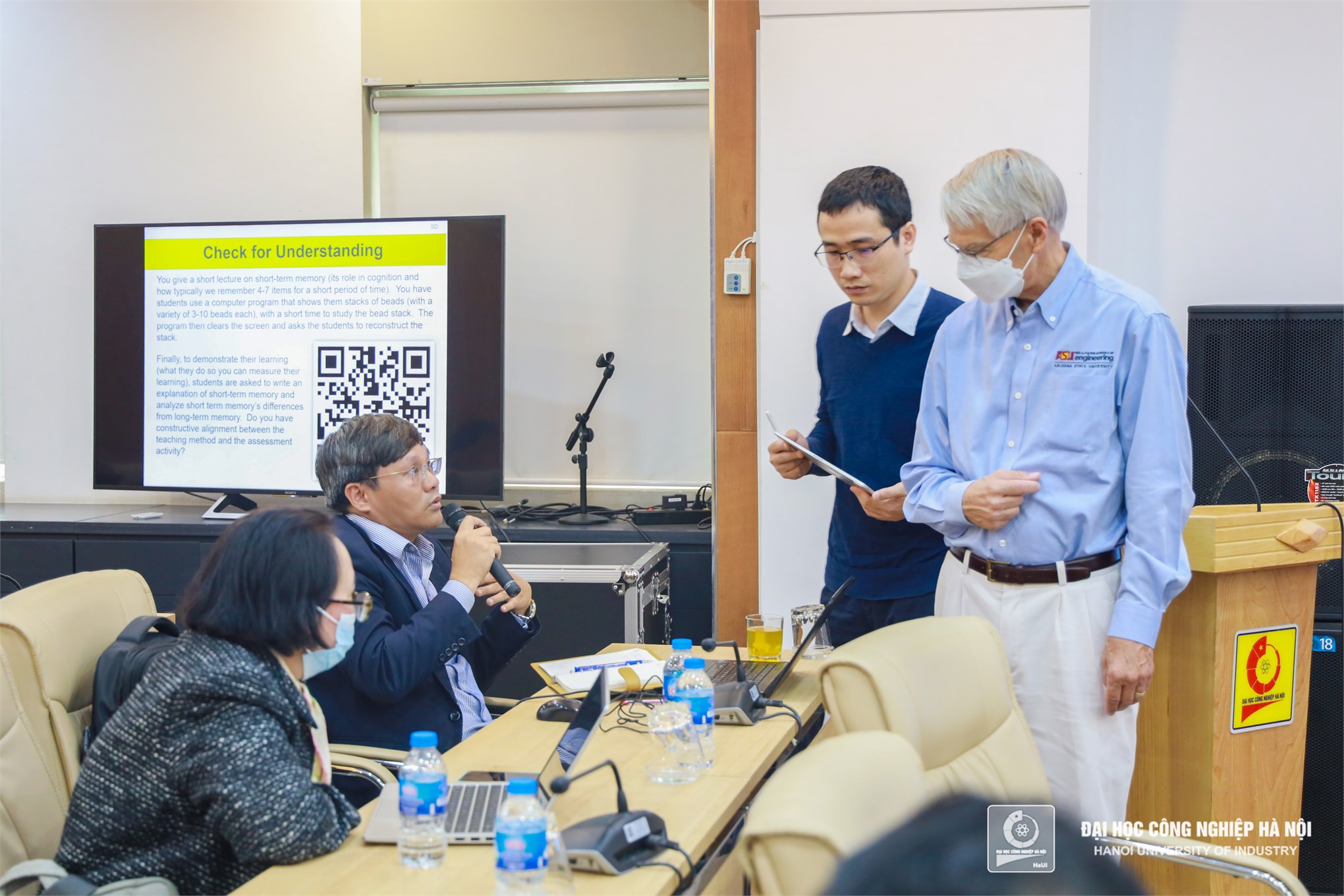 Dr. Scott Danielson guided lecturers in the Workshop
Dr. Scott Danielson guided lecturers in the Workshop
The Workshop introduced and gave detailed instructions on assessment techniques using rubric tools (evaluative sheets) to measure the achievement of students' soft skills such as communication skills, teamwork skills, critical thinking skills, self-directed learning skills and lifelong learning skills.
Within the framework of the Workshop, lecturers were divided into groups to develop appropriate output standards, propose teaching strategies compatible with Bloom's Taxonomy, and design assessment tools to determine students’ learning outcomes.
Workshop “ABET and AUN Accreditation: Verification of Self-Assessment Reports and Evidence - Gathering Evidence Through Interview”
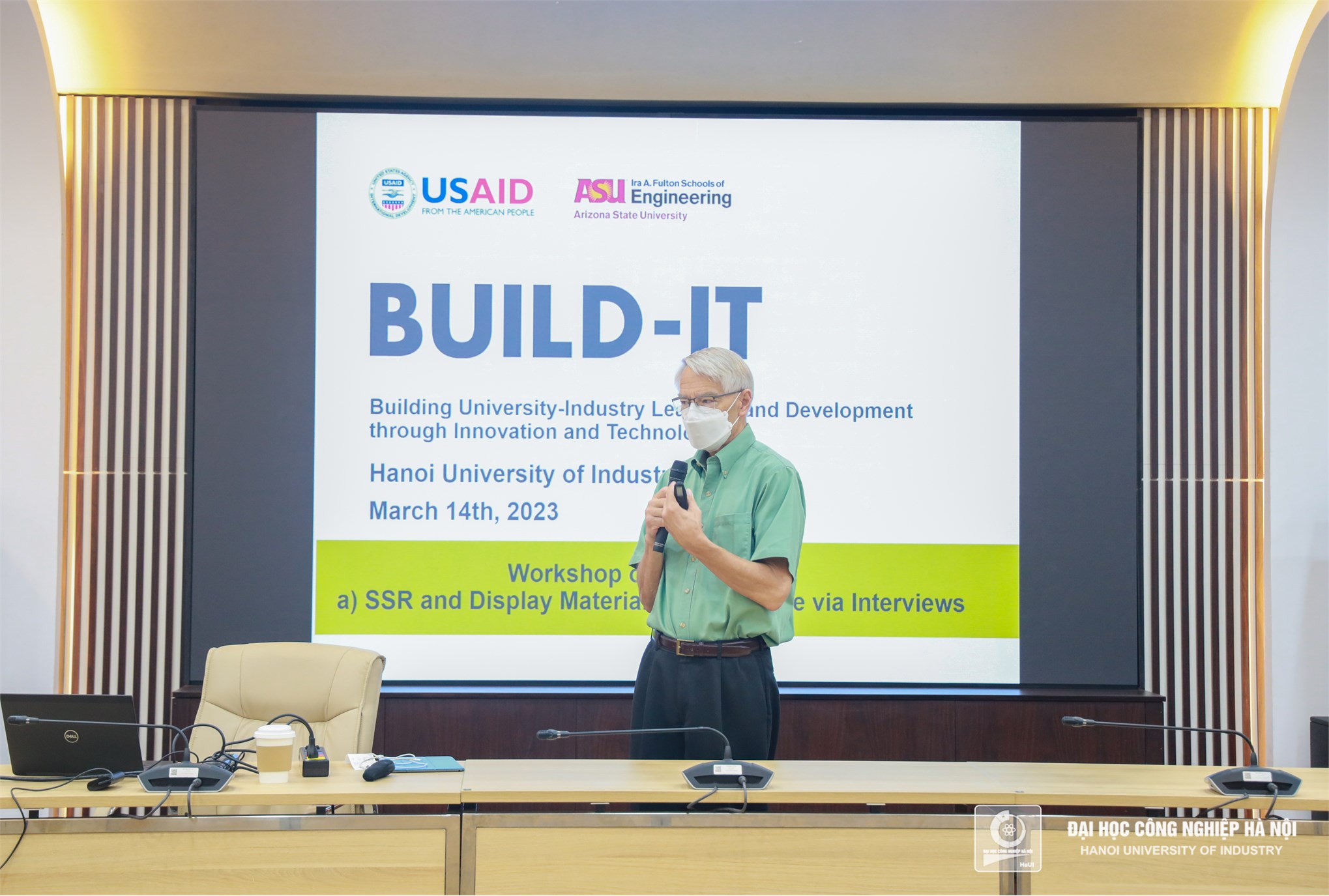 Dr. Scott Danielson presented at the Workshop
Dr. Scott Danielson presented at the Workshop
The first part of the Workshop focused on presenting the skills used by the assessors to verify the information and documents covered in the Self-Study Report (SSR) during the school visit.
The second content focused on interviews with different individuals and groups. For each different group of interviewees, there were different interviewing techniques and questions. The questions were designed around a common goal of providing relevant evidence compatible with each criterion.
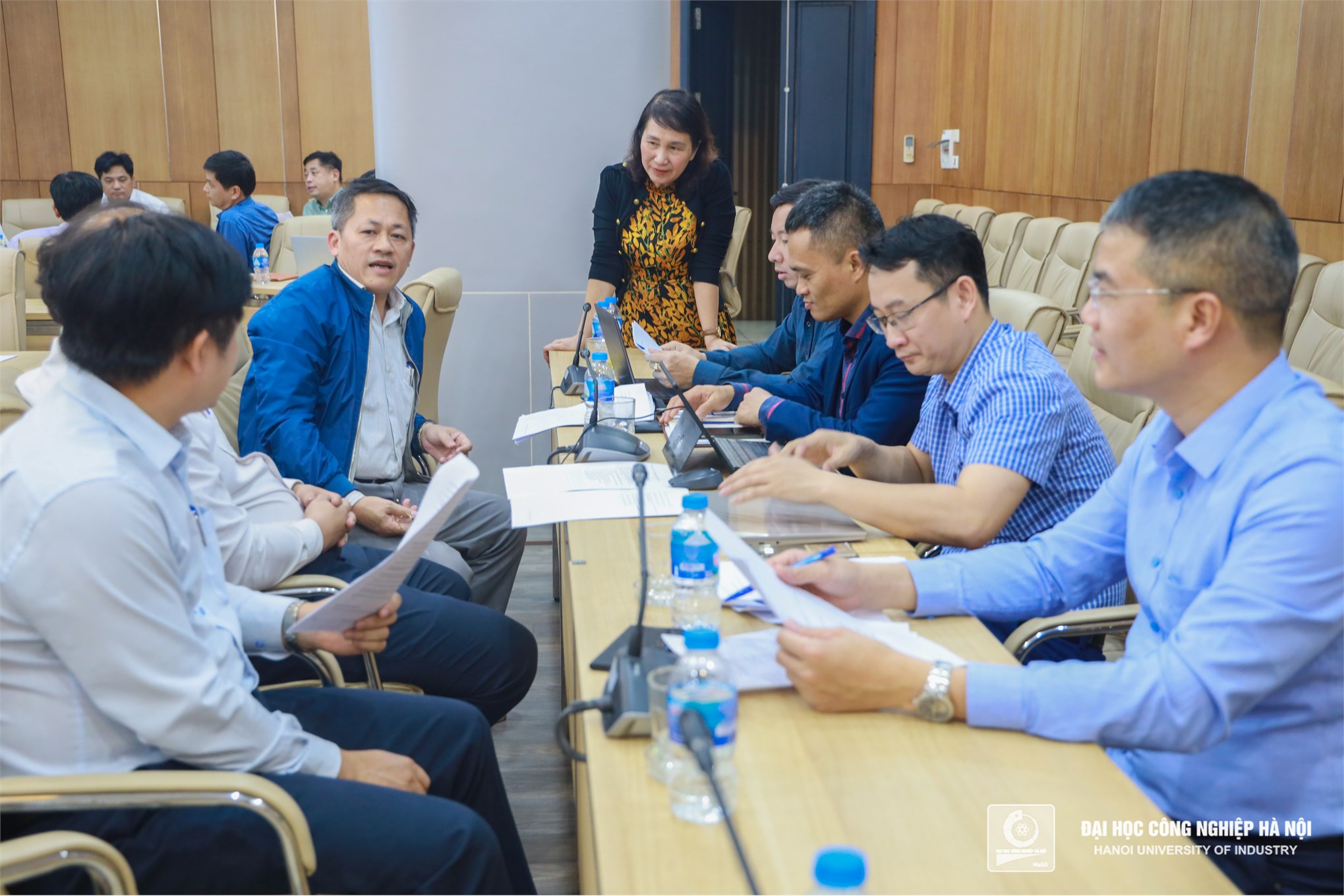 Lecturers were divided into groups to practice under the guidance of experts
Lecturers were divided into groups to practice under the guidance of experts
Particularly, the lecturers were divided into different interview groups. Each group consisted of an interviewer and an interviewee. Interviewees such as the University’s leaders, faculty leaders, businesses leaders, support staff, lecturers, students and alumni have their own set of questions, in accordance with the accreditation criteria.
Workshop "Design Thinking for Higher Education Leaders"
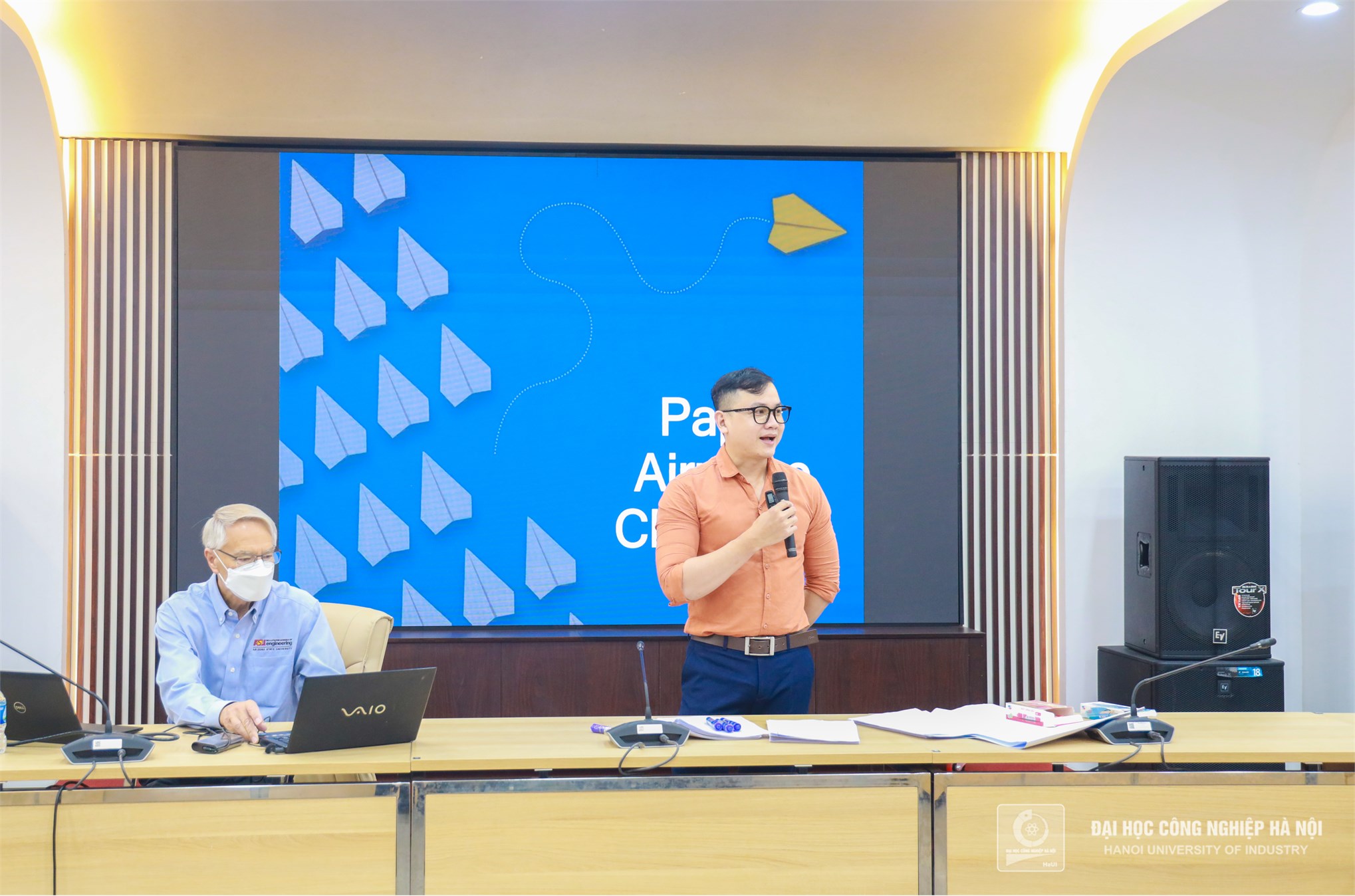 Mr. Tran Thai presented at the Workshop
Mr. Tran Thai presented at the Workshop
The Workshop "Design Thinking for Higher Education Leaders" kicked off with a paper airplane challenge. Through this activity, the trainers had a basic look at design thinking by setting goals, understanding user needs, resources spent and results achieved.
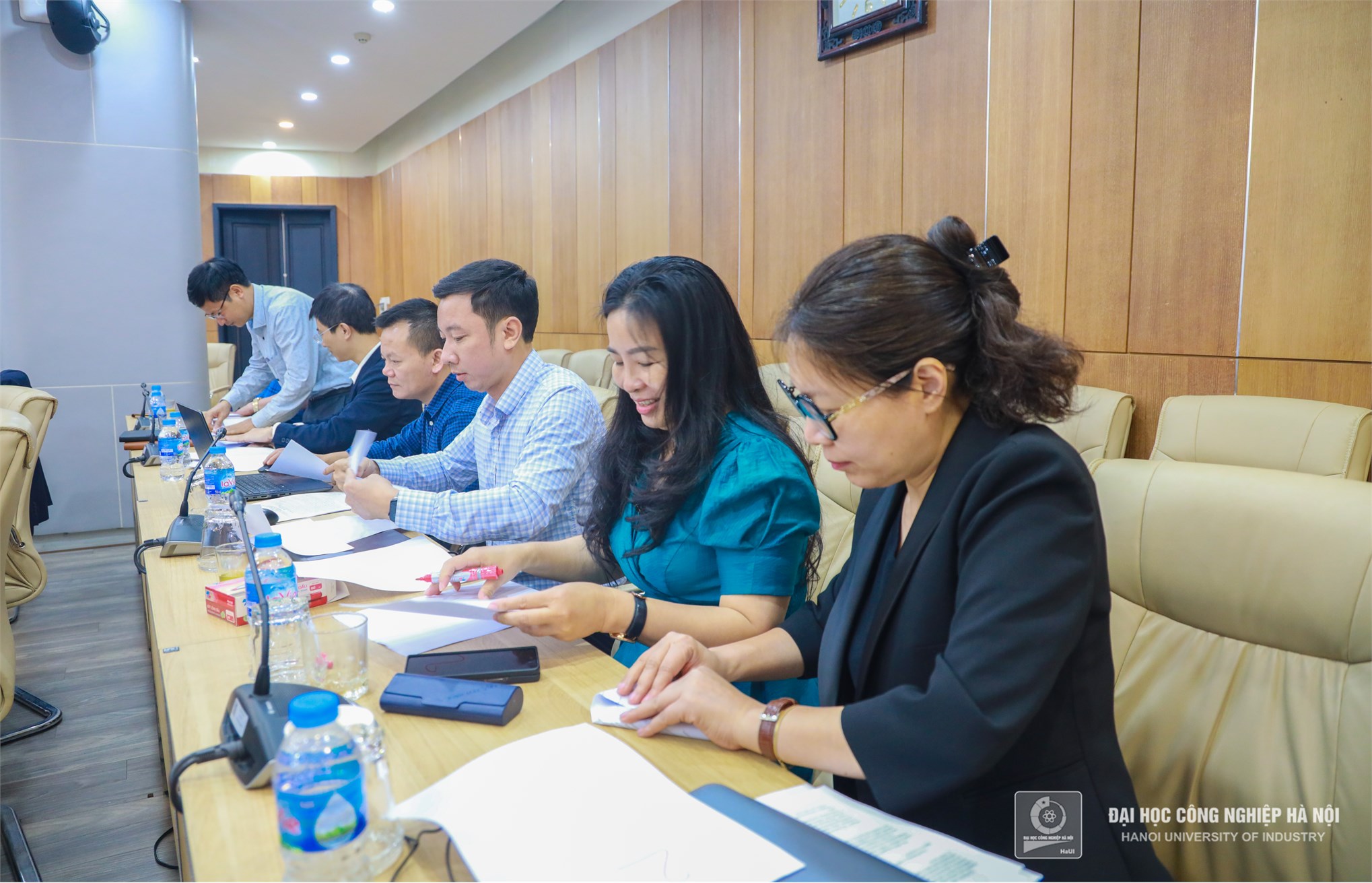 Lecturers participated in paper airplane challenge
Lecturers participated in paper airplane challenge
According to experts, design thinking is an effective, creative and purposeful tool for process improvement or product design, such as training programs. Lecturers learned the basic concepts, benefits, and implementations of design thinking. In the era of VUCA (Volatility, Uncertainty, Complexity and Ambiguity), the application of principles of design thinking in higher education institutions will help to find solutions to difficult problems or create new forms and models of cooperation.
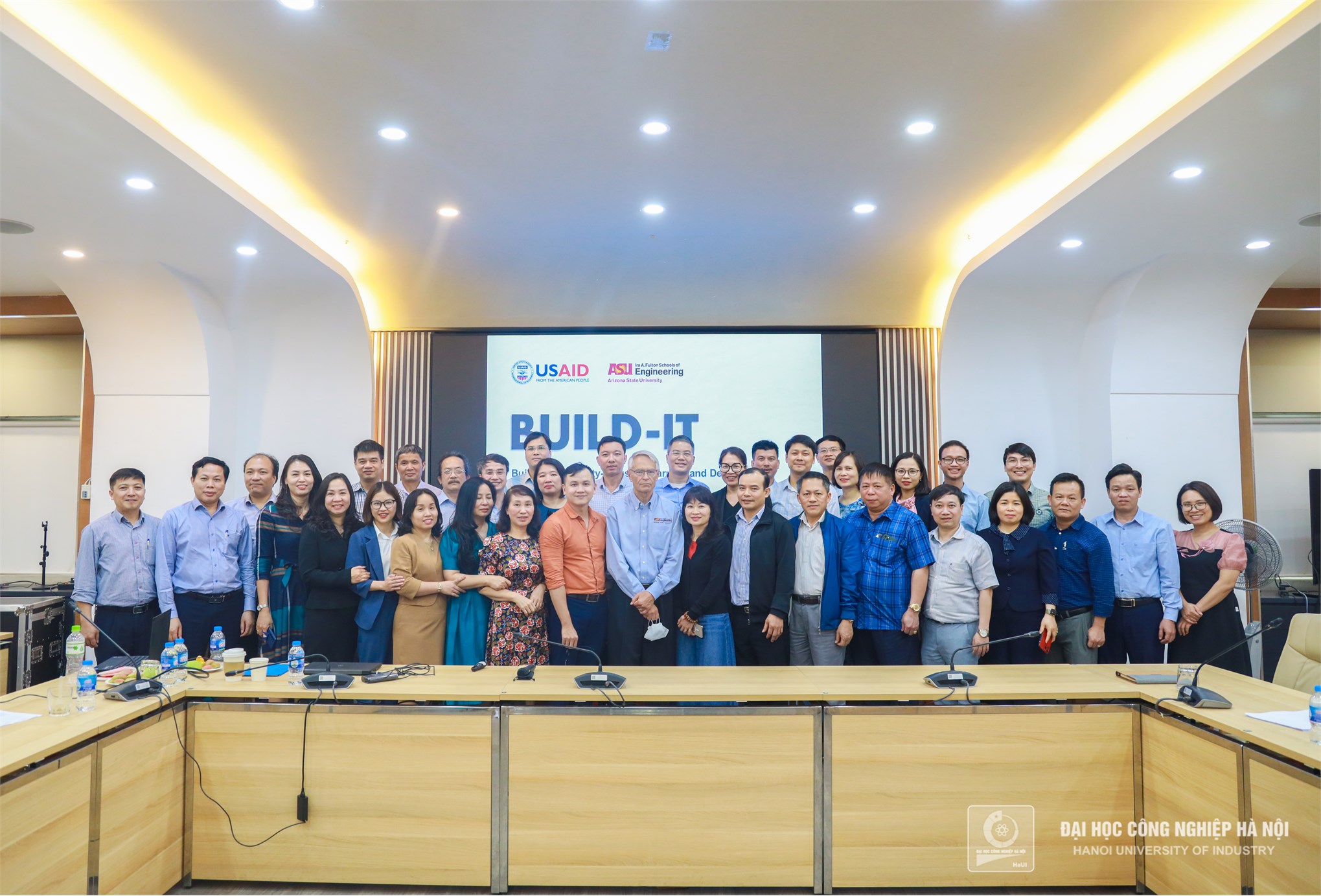 Delegates attending the workshop took souvenir photos
Delegates attending the workshop took souvenir photos
In the past time, Hanoi University of Industry has made great efforts to coordinate with partners to deploy many seminars and training activities to improve the capacity and professional knowledge for staff and lecturers in the field of education assessment and accreditation as well as aim to strengthen the position of Hanoi University of Industry among prestigious domestic and international universities.
-
Thứ Năm, 15:53 16/03/2023
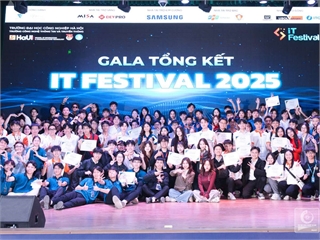

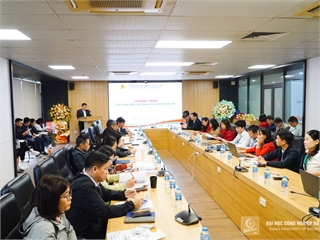
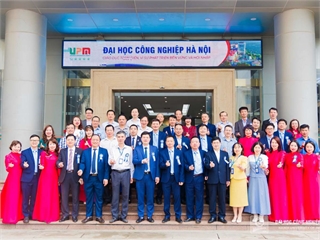
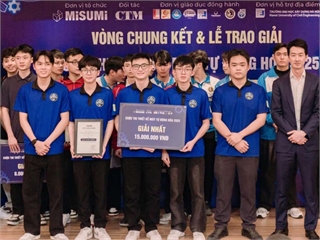
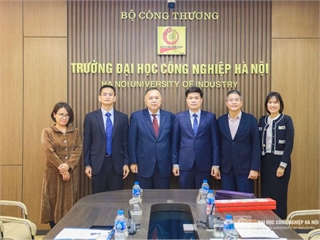
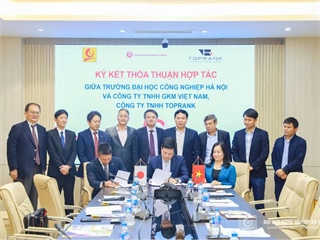

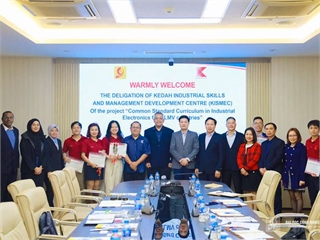
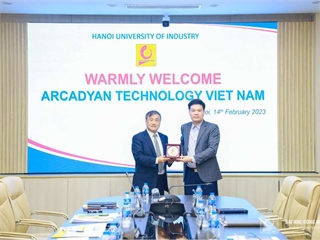
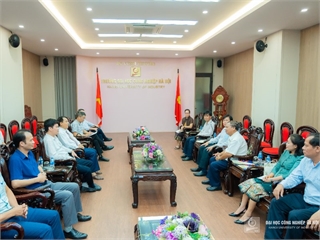
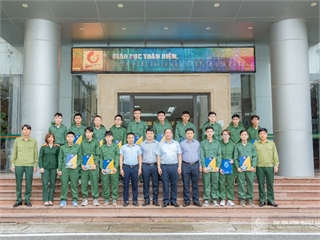
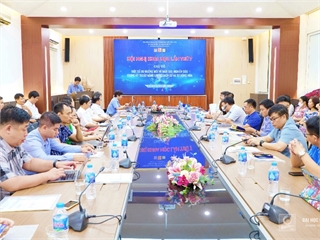
![[LIVESTREAM] Hiểu đúng ngành, chọn đúng nghề - Tư vấn chuyên sâu nhóm ngành Điện, Điện tử](https://www.haui.edu.vn/media/84/m84969.jpg)
![[LIVESTREAM] Hiểu đúng ngành, chọn đúng nghề - Tư vấn chuyên sâu nhóm ngành Ngôn ngữ, Văn hóa, Du lịch & Khách sạn](https://www.haui.edu.vn/media/84/m84967.jpg)